The Cuba Wars: Fidel Castro, the United States, and the Next Revolution
Daniel P. Erikson, Senior Associate, US Policy Inter-American Dialogue
Transcript
NEW YORK, NY—On February 18, 2009, Daniel Erikson spoke to the Women’s Foreign Policy Group and the Institute of International Education on his latest book, The Cuba Wars: Fidel Castro, the United States, and the Next Revolution in New York. Mr. Erikson discussed the impact of Fidel Castro’s replacement by his brother, Raul, the changes in US policy regarding the embargo in Miami, and the role of Guantanamo Bay in US-Cuba relations. In terms of the future, he discussed how the arrival of the new US Administration may affect the future of United States’ Cuba policy and named a number of challenges to increasing cooperation between the US and Cuba, including the strong presence of hard-line, pro-embargo Cuban-Americans in both Miami and the US Congress. He also spoke of a new possibility for improving US-Cuba relations and though he conceded that “on Cuba, no one ever got it wrong by saying ‘nothing’s going to change,’” he believes that changing views in Miami and Obama’s unique position as the first president to be born after Fidel Castro assumed power in 1959 and a candidate who ran on a foreign policy platform of engagement with America’s adversaries offer the potential for substantive reform.
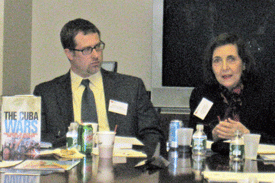
WFPG President Patricia Ellis introduces Daniel Erikson
|
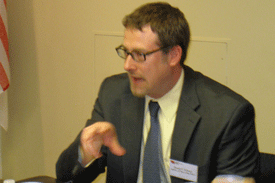
Daniel Erikson
|
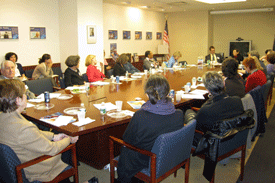
WFPG Author Series at the Institute for International Education in New York
|
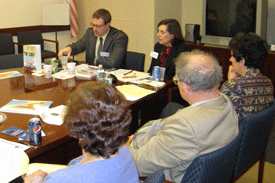
Daniel Erikson discusses his book, The Cuba Wars
|
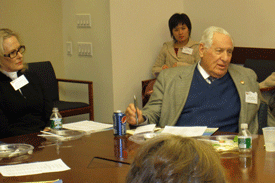
Sylvan Barnett of Rotary International
|
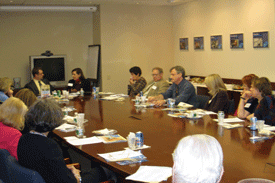
Daniel Erikson responds to a question during the Q&A period
|
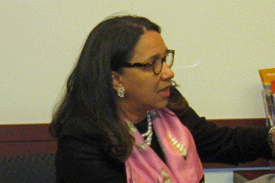
An audience member asks a question during
the Q&A period
|
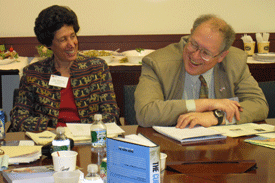
Peggy Blumenthal of the Institute for International Education and John McAuliff of the Fund for Reconciliation and Development
|